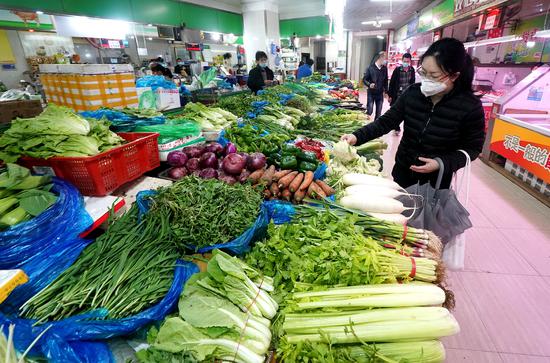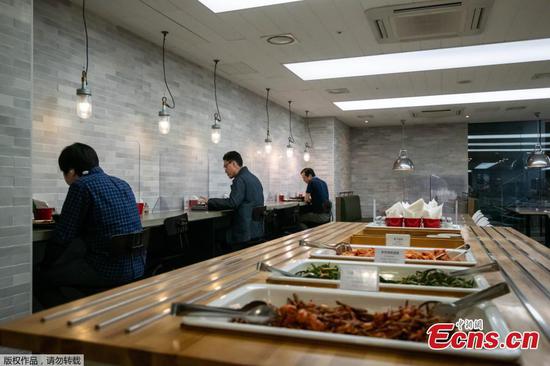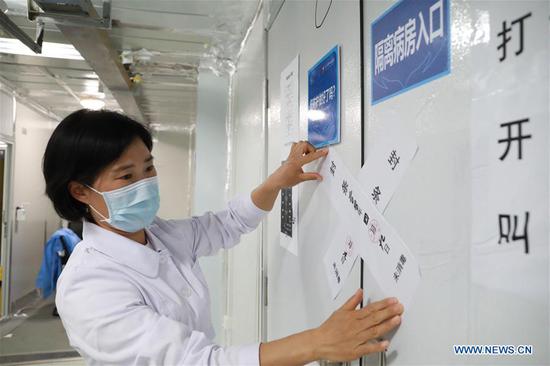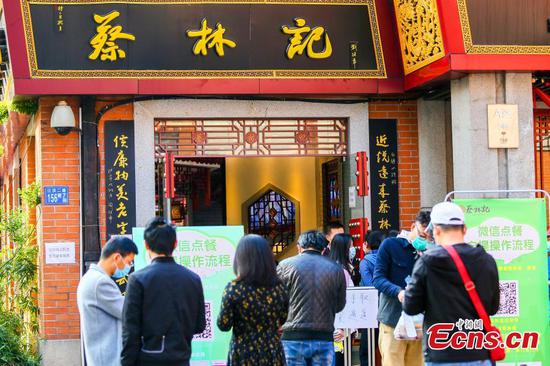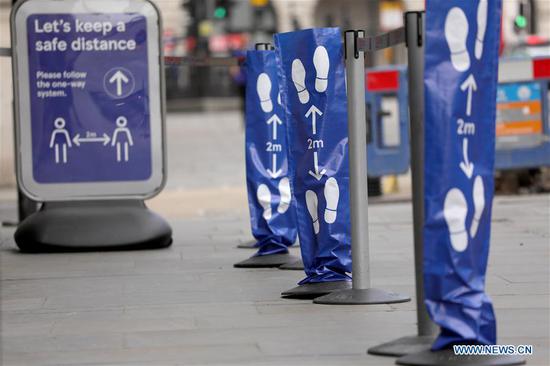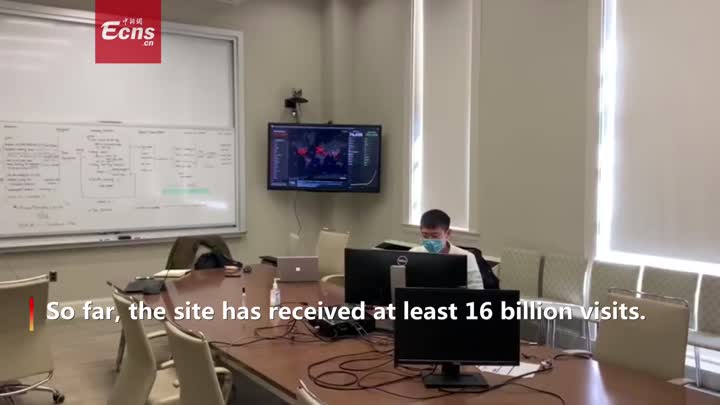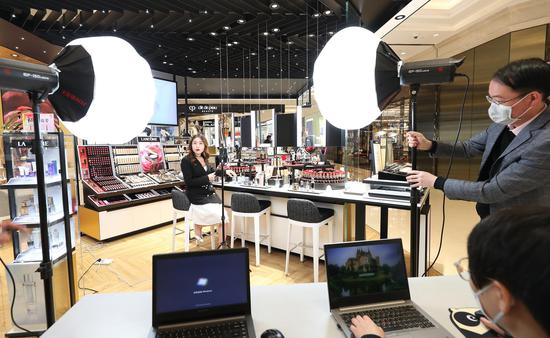
Staff prepare for a livestreaming sale at the New World Daimaru Department Store in east China's Shanghai, March 20, 2020. (Xinhua/Chen Fei)
The ongoing novel coronavirus outbreak has dealt a blow to the Chinese economy.
With stringent and thorough measures adopted to combat the virus, the epidemic continues to ebb away across the country.
Economic activities also begin to regain vitality in the world's largest market, with normal production gradually resuming and market expectations brightening.
LIVESTREAM E-COMMERCE
Leaning on the counter of the French cosmetic brand Lancome in New World Daimaru Department Store in Shanghai, shopping assistant Chen Cheng is busy introducing the newest products to consumers.
Instead of face-to-face interaction, Chen is selling products via livestreaming to consumers who choose to shop at home in this special period. Within a couple of days, their online orders will be delivered to their doorsteps.
Chen is one of the salespeople-turned livestream hosts in the department store, which has pinned its hopes on livestream e-commerce to engage consumers and cushion the impact of the outbreak.
In two days, the shopping mall achieved an online sale volume of about 1.88 million yuan (around 267,000 U.S. dollars).
"The consumer market is rapidly recovering. We have the confidence to ride out the pressure brought by the outbreak and maintain a strong sales performance this year," said Ma Mu, manager of the e-commerce management department of the store.
Yet this is far from an isolated case. Amid the epidemic, more Chinese enterprises are launching livestream projects for offline stores to power their e-commerce businesses.
On April 1, Greenland Global Commodity Trading Hub Group cooperated with the Consulate General of Argentina in Shanghai to launch a livestream session to promote signature products from the Latin American country.
Jointly hosted by James Xue, general manager of the Shanghai-based group, and Pablo Agustin Obregon, consul general of Argentina in Shanghai, the livestream session sold wine, shrimp, steak and other products from Argentina to Chinese consumers, attracting 15,000 viewers in one hour.
"As the epidemic recedes, the domestic consumer market is rapidly recovering. Livestreaming has opened up a new channel for delivering goods to stay-at-home consumers," said Xue.
Boosted by multiple livestream sessions, in the first quarter of this year, the import business of the group's international trade grew nearly three times from the previous quarter. G-Super, a chain supermarket brand of the group, has also seen a year-on-year increase of over 300 percent in its online sales volume since late March.
